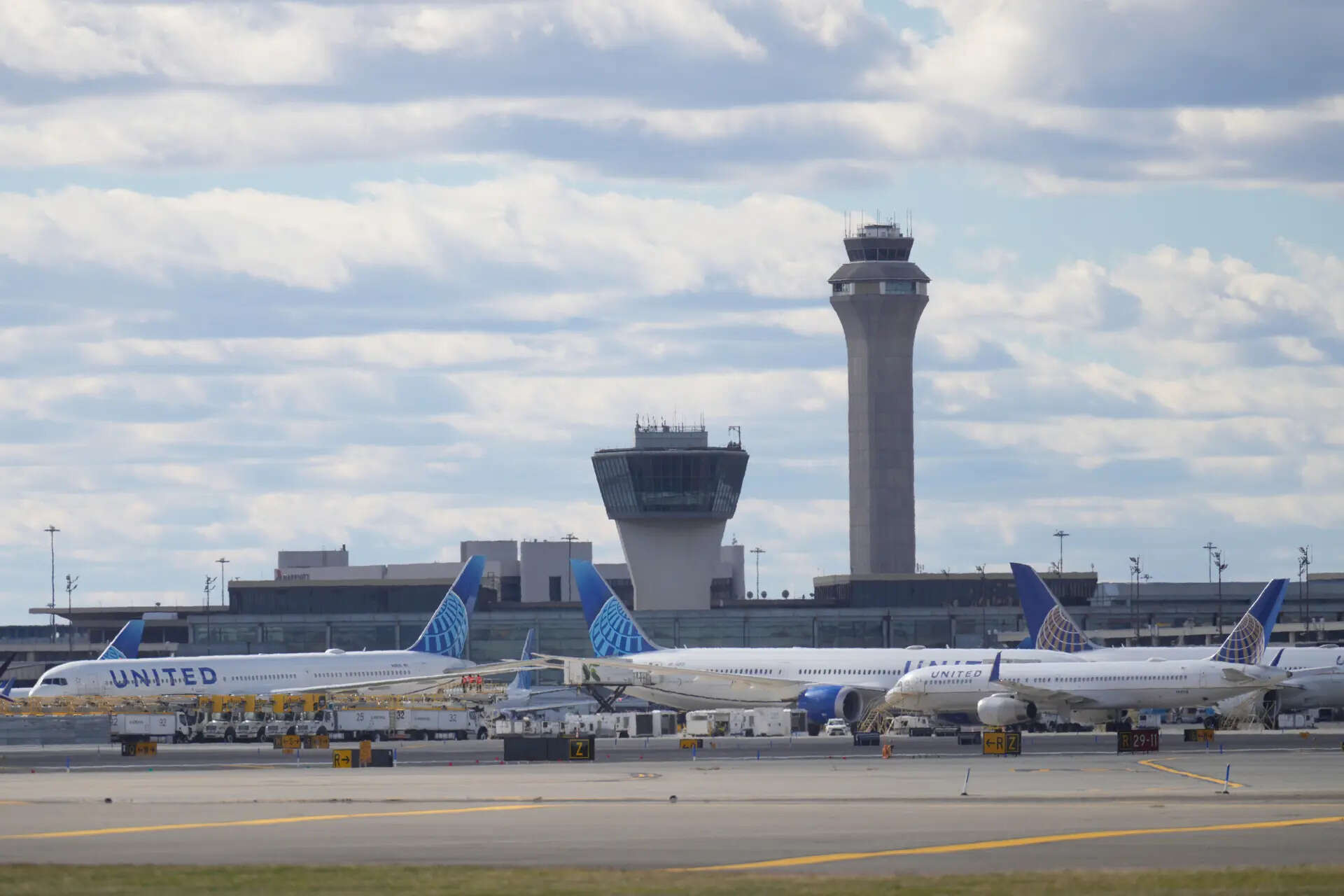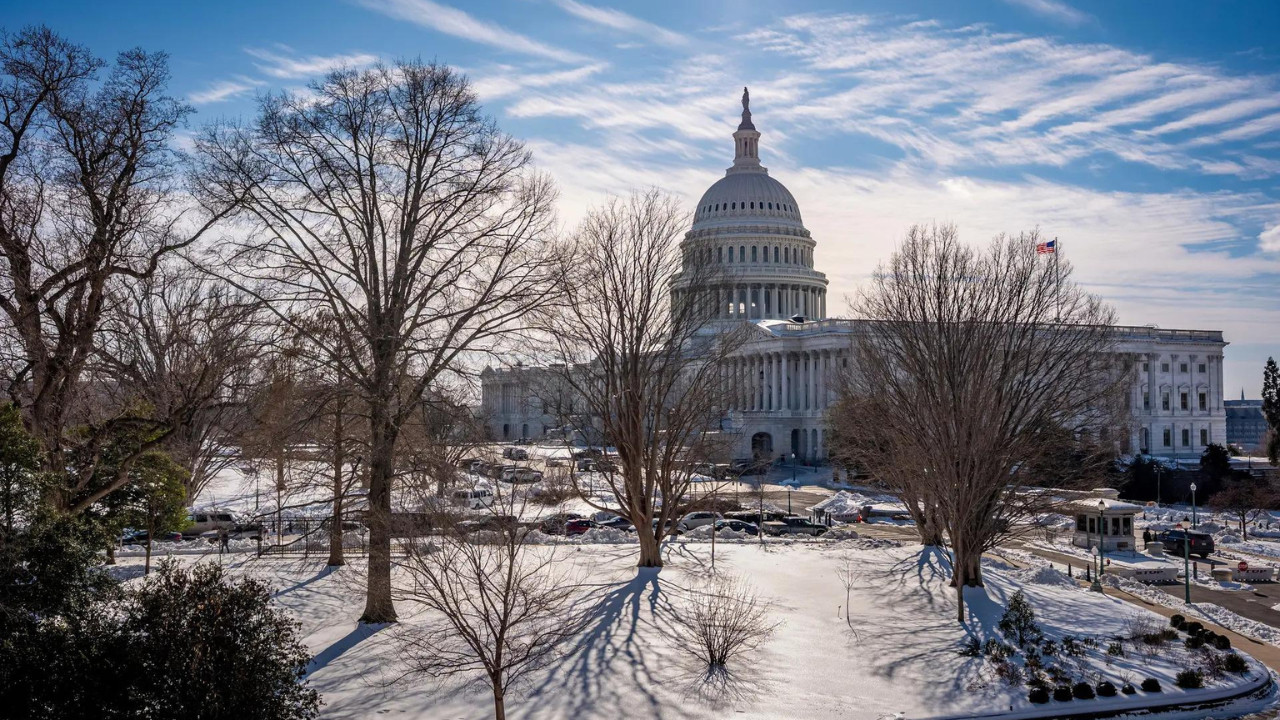The ongoing government shutdown has severely disrupted US flight schedules, leading to over 2,500 cancellations by Saturday evening. Staffing shortages at FAA radar centers and control towers, exacerbated by unpaid air traffic controllers, are forcing airlines to scale back operations. This is causing significant passenger anxiety, financial losses, and broader economic concerns for supply chains and tourism.
Navigating Holiday Turbulence: Flight Cancellations and the Specter of a US Shutdown
The aroma of pumpkin spice and the excitement of reuniting with loved ones usually fill the air this time of year. But for thousands of travelers over the Thanksgiving weekend, a less festive scent permeated the atmosphere: frustration. Over 2,500 flights were grounded, leaving countless passengers stranded and scrambling amidst the busiest travel season of the year. What caused this pre-holiday travel chaos, and what does it signal for the future of air travel?
The disruption wasn’t simply bad luck. A confluence of factors created a perfect storm, leaving airlines struggling to cope. Severe weather played a significant role, particularly in the Southeast, with thunderstorms and strong winds forcing ground stops and delays. However, the weather alone doesn’t account for the sheer scale of the cancellations.

Behind the scenes, air traffic control (ATC) staffing shortages added another layer of complexity. These shortages, amplified by the existing strains on the aviation system, meant fewer flights could be safely managed, leading to bottlenecks and cascading delays across the country. The FAA has been working to address these issues, but progress is slow, and the impact is being felt acutely by passengers.
Adding fuel to the fire is the looming threat of a US shutdown. While not directly responsible for the Thanksgiving weekend cancellations, the prospect of a government shutdown hangs heavy over the aviation industry. The potential furlough of air traffic controllers and other essential FAA personnel would cripple air travel, leading to even more widespread cancellations and delays. This uncertainty adds significant anxiety to an already stressed system. Imagine arriving at the airport, only to find out your flight is cancelled not because of weather, but because the government can’t agree on a budget.
Decoding the Delays: Weather and Beyond
While airlines often point to weather as the primary culprit for flight disruptions, a deeper dive reveals a more nuanced picture. Yes, severe storms can wreak havoc, grounding planes and forcing rerouting. But airlines also face challenges related to aging infrastructure, inadequate staffing levels, and outdated technology. These systemic issues, often masked by weather-related explanations, contribute significantly to flight delays and cancellations.
Pilots, flight attendants, and ground crews are also feeling the strain. Labor disputes and contract negotiations are ongoing at several major airlines. These disputes, stemming from concerns about pay, working conditions, and quality of life, can contribute to operational disruptions and further exacerbate the travel chaos. Maintaining a happy and healthy workforce is crucial for smooth airline operations, and neglecting this aspect can have significant consequences for passengers.
Could a US Shutdown Ground More Than Just Planes?
The very real possibility of a US shutdown looms large over the travel industry, casting a long shadow over future travel plans. A shutdown would trigger a cascade of consequences, from reduced air traffic control capacity to potential disruptions in security screening processes. The ripple effects would be felt across the entire aviation ecosystem, leading to widespread cancellations, delays, and passenger frustration.
This isn’t just about inconvenience; it’s about the potential economic impact. The travel industry supports millions of jobs and contributes significantly to the national economy. A protracted shutdown could have a devastating impact, leading to lost revenue, business disruptions, and job losses. The uncertainty surrounding the possibility of a government shutdown is causing anxiety for both travelers and industry professionals alike. Airlines are bracing for potential disruptions, while passengers are left wondering whether their travel plans will be affected. You can read more about travel advisories here.
Preparing for Turbulence: Tips for Travelers
So, what can you do to navigate this era of travel uncertainty? Here are a few tips to help you mitigate the risks:
* Stay informed: Monitor weather conditions and airline updates before heading to the airport.
* Be flexible: Be prepared to adjust your travel plans if necessary.
* Download the airline app: Receive real-time updates and manage your booking easily.
* Travel insurance: Consider purchasing travel insurance to protect yourself against unexpected cancellations and delays.
* Pack smart: Pack essential items in your carry-on bag in case of delays or lost luggage.
While you can’t control the weather or government gridlock, you can take steps to minimize the impact on your travel experience.
The recent flight cancellations serve as a stark reminder of the vulnerabilities within our air travel system. Weather, staffing shortages, and the looming specter of a US shutdown create a volatile mix. While airlines are working to address these challenges, passengers must also be proactive in protecting their travel plans. By staying informed, being flexible, and preparing for potential disruptions, travelers can navigate the turbulence and make the most of their journey, even during uncertain times.







